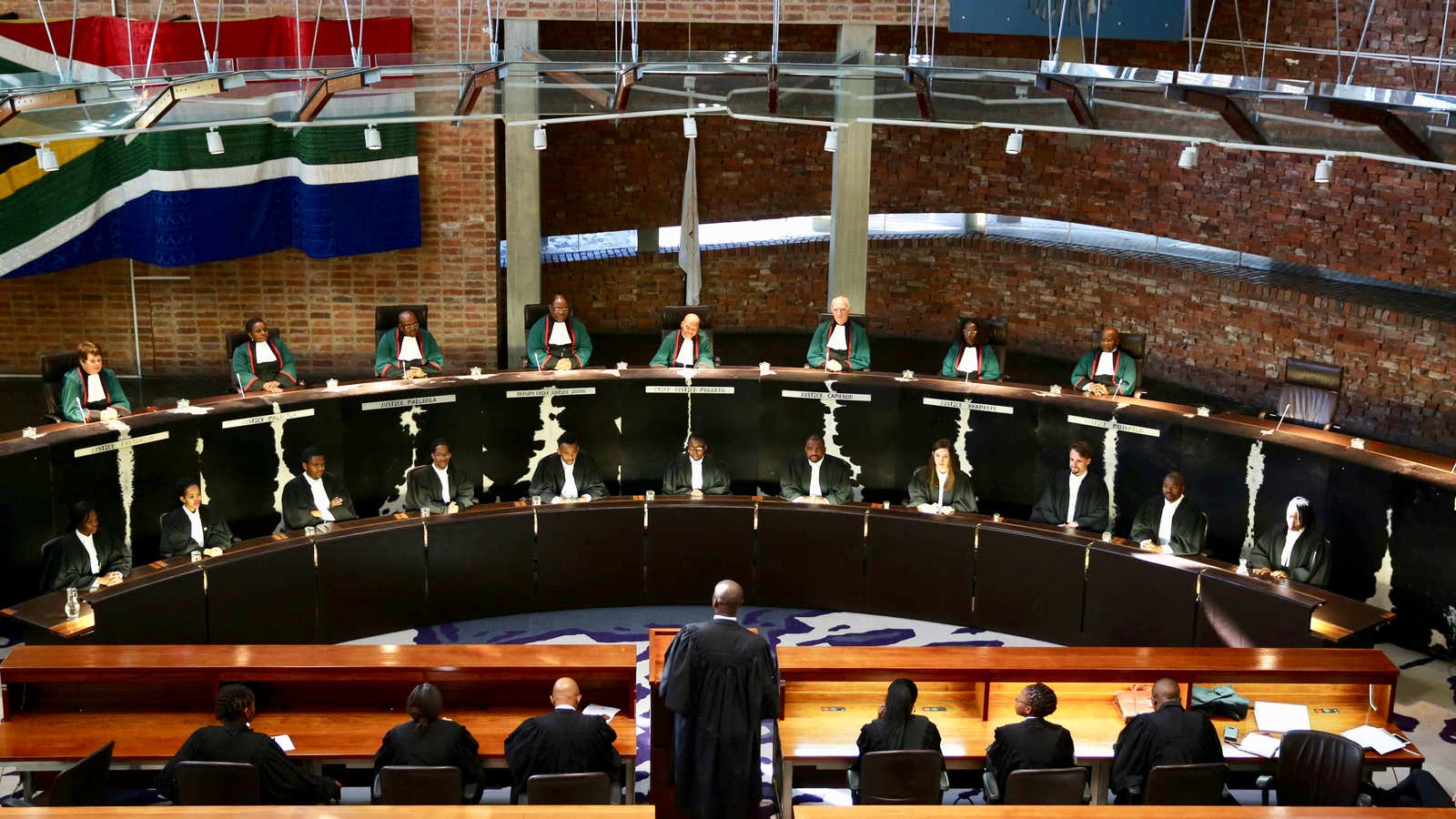Once again, South Africa’s courts have been dragged into a political spat. This time, it’s a constitutional court ruling on whether members of parliament can use a secret ballot to vote in a motion of no confidence against president Jacob Zuma.
Opposition parties, far outnumbered in the national assembly, hope that a secret vote would encourage disgruntled members to vote against the president in what would be the eighth such motion against Zuma later this year.
The June 22 ruling appealed to the conscience of elected members but ultimately sent the decision back to parliament. The court ruled that speaker Baleka Mbete had to decide whether votes would be hidden, placing the burden on Mbete to balance her roles as a senior member of the ruling African National Congress and the national assembly.
These are not necessarily decisions for a court to decide, and yet they are increasingly the issues that judges are required to intervene on. The judiciary should have been the last resort for oversight because parliament is elected to hold the executive account.
“It certainly isn’t the normal sate of affairs,” said constitutional expert Phephelathi Dube. “The reason we’re seeing more and more of these court cases is because there’s a failure of oversight.”
“I’m hesitant to involve the judiciary in matters involving politics because it erodes the legitimacy of the courts,” said Dube, director of the Centre for Constitutional Rights. “The de facto perception is that unelected judges are in essence making the country’s important decisions.”
Neither the judiciary nor opposition parties want to spend their time in court, but for now it seems the only way to ensure any accountability, said the official opposition, who currently have 17 cases in front of the high court.
“We’re in the business of winning votes, not winning court cases,” said James Selfe, a member of the Democratic Alliance. Cases are supposed to go to other courts before being elevated to the Constitutional Court, but Selfe believes it reflects the judiciary’s growing concern for the country that they allow matters like this, and the Nkandla case, to be heard directly.
It isn’t just the opposition parties who need a mediator from the bench—NGOs have dragged the government to court, and the ANC has also turned to the courts over arguments with the opposition. The constant presence of political parties on the court roll speaks to the poverty of dialogue in the country. Put plainly, it shows that elected officials can’t sort out their disagreements, eroding the efficiency of government and the public’s faith.
“A judicial victory is not the same as what is gained through political organization and through winning political support,” wrote Raymond Suttner, an apartheid-era activist turned academic.
In any healthy democracy, laws and policy should be tested against the constitution, for the sake of the people. The constitution should be the conscience of its country, not the referee between political egos.
